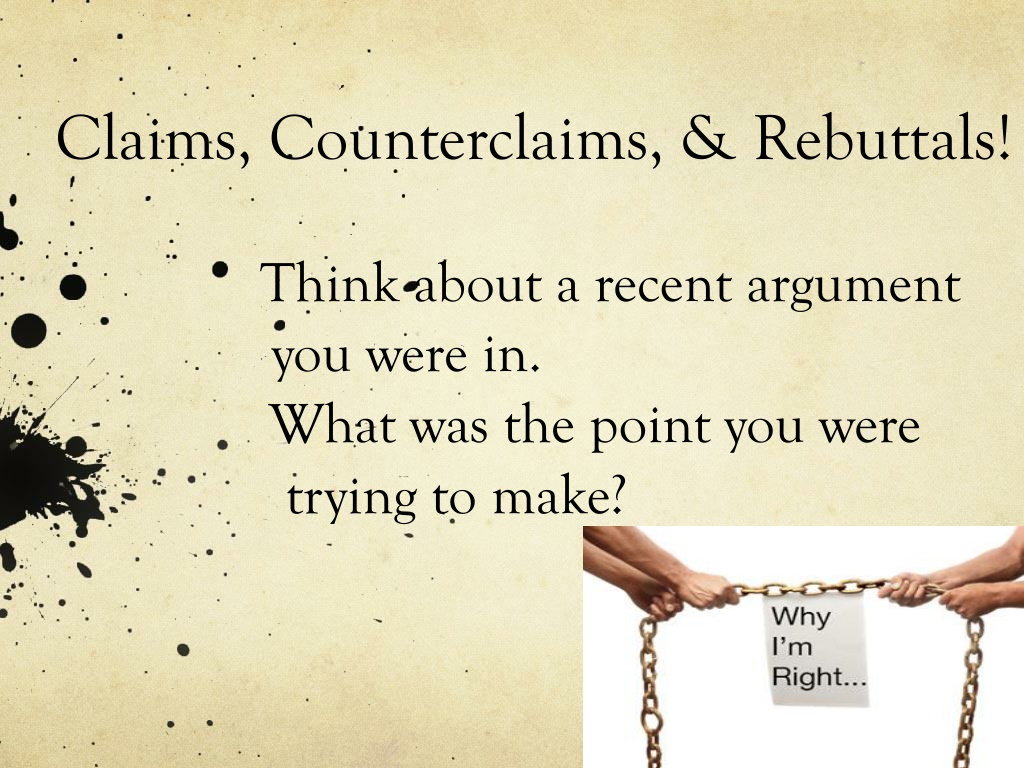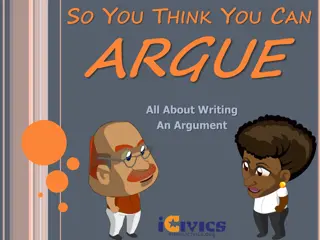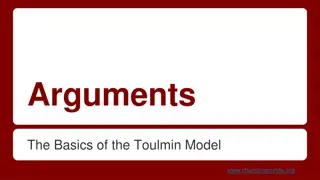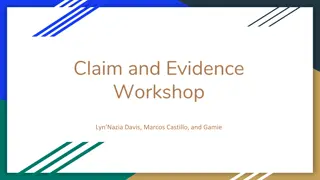Mastering Claims, Counterclaims, & Rebuttals in Arguments
Understand the crucial elements of claims, counterclaims, and rebuttals in arguments. Learn how to structure your points effectively and respond to potential disagreements to strengthen your argument and persuade your audience. Utilize examples and practical tips to enhance your argumentative skills.
Download Presentation

Please find below an Image/Link to download the presentation.
The content on the website is provided AS IS for your information and personal use only. It may not be sold, licensed, or shared on other websites without obtaining consent from the author. Download presentation by click this link. If you encounter any issues during the download, it is possible that the publisher has removed the file from their server.
E N D
Presentation Transcript
Claims, Counterclaims, & Rebuttals! Think about a recent argument you were in. What was the point you were trying to make?
Whats a claim? A claim is an arguable statement the claim shares your opinion and can be argued one way or another. For example: Students should be allowed to chew gum at school. There are two sides to this issue and I could argue that chewing gum at school is a good or bad idea!
There are two types of claims There is one main claim for your whole essay, in the introductory paragraph (also called a thesis) EX: Students should be allowed to chew gum 1 Secondary claims (your reasons for the main claim) are woven into your body paragraphs. For example: Gum can help you focus If students could chew gum they d be less stressed Gum can improve your mood and lead to students being nicer to each other. 2
What is a counterclaim? This is what your audience may say to disagree with you. You need to address your audiences concerns so you can refute them! To do this well you MUST know your audience!!! For Example: My teacher may say: Gum may cause a distraction if you chew it loudly My principal may say: Gum causes messes that take too much of our custodian s time and makes our school look bad.
How do I respond to the counterclaim? With a rebuttal! The rebuttal is the comeback How will you shoot down their disagreement and bring them back to your side to see your vision and why you are correct. For example: If students weren t afraid of being caught, they wouldn t feel the need to stick gum to desks to hide it from their teachers.

























